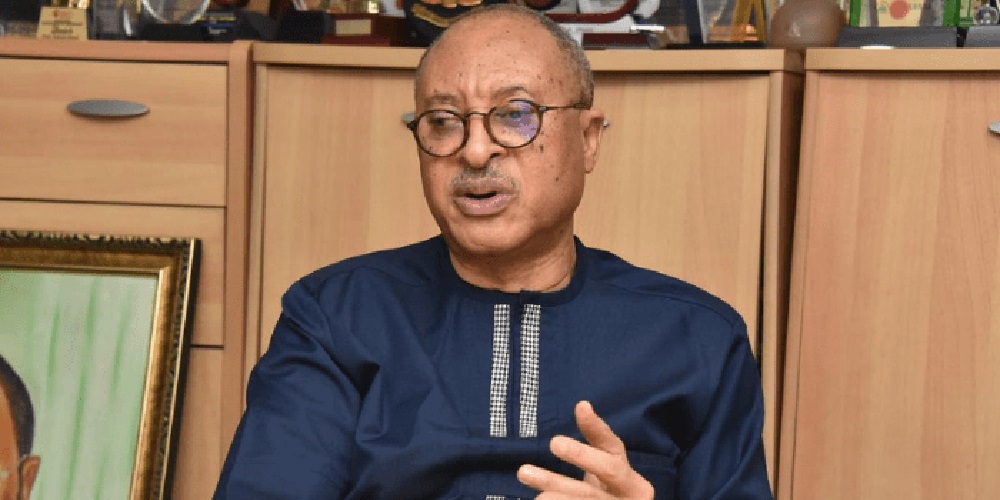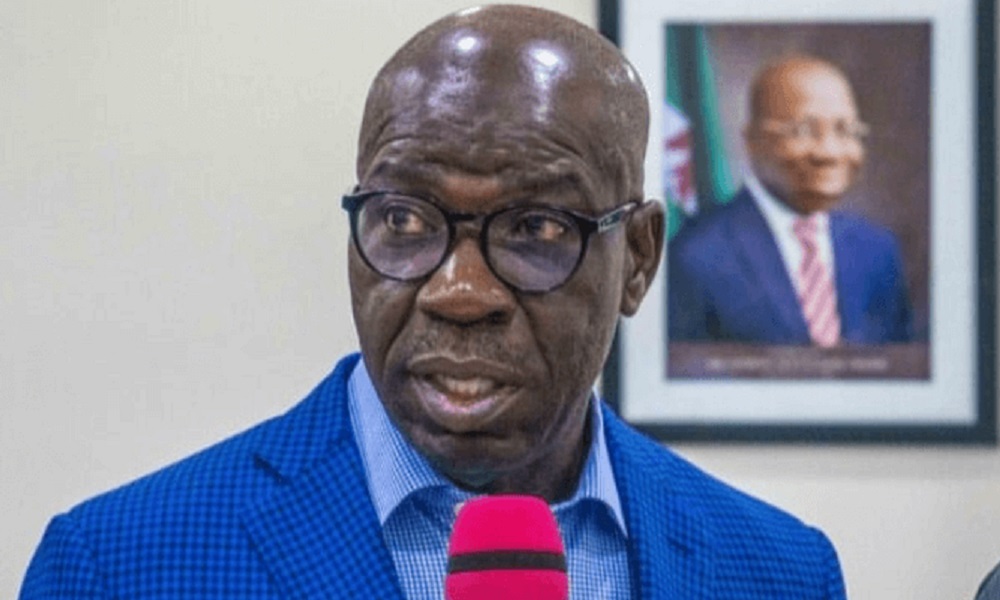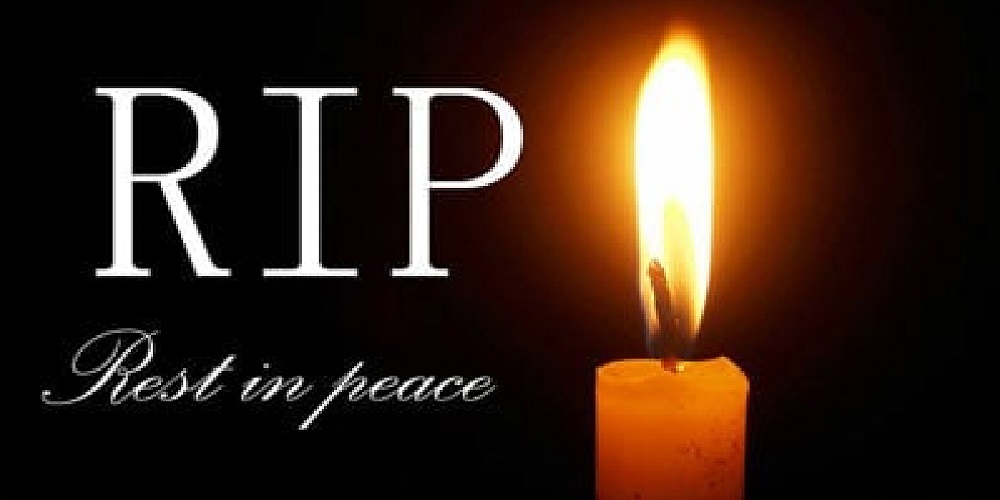News
N’Assembly, judiciary capture under Tinubu worst ever — Utomi

Renowned economist, Prof Pat Utomi, has claimed that the nation is presently a failure, made worse by the lack of alternative thinking to turn things around.
According to Utomi, the lack of alternative thinking was worsened by a total capture of the legislature and the judiciary, as he described the present National Assembly as the worst thing that happened to the country.
He argued that the National Assembly, which should be the platform for robust debates to turn around the nation’s fortunes, had been captured.
Speaking with The PUNCH, the economist said Nigeria was a tragic failure because the political class and the elites, particularly the legal elite, are self-centred rather than thinking of the common good of the nation.
Utomi said it was baffling that the Nigerian political class failed to recognise that the nation was presently at war, requiring a war cabinet where almost everybody pulls together to fix the nation’s problems.
He stressed that there was a need for the leadership to sincerely lead by example, particularly cutting down on its lavish lifestyle, rather than calling on Nigerians to sacrifice.
“Nigeria is a failure right now; democracy is not working. We all know that; anybody who does not know that is fooling himself. We have total judicial capture; we have legislative capture, so there is no alternative thinking in the country.
“For me, the worst thing that has happened to the country is the National Assembly because that is where you should have the kind of debates that will lead you to options, but you can’t because the whole place is captured.
“These guys are just hustlers trying to get what they can out of the system without asking what will make the country work.
“When you have that kind of problem, you come to the point that James Robinson was making when he says a classic example is Nigeria which knows what to do but cannot seem to do it. You need, in a time like this, a certain kind of mindset.
“A local example is Olusegun Obasanjo in 1976/1977 when the oil crisis began to slide. He decided that we would go to low-profile mode. As head of state, his car was a Peugeot 504; he cut his travels.
“Anybody who watches the way people in power spend public resources cannot take seriously any statement that this is a time of sacrifice. So, the problem begins with them. Intense political commitment is not there,” he said.
The economist added, “You cannot save an economy when the political actors are on a binge and you will not have the kind of consequences that you have today for the economy.
“It is an intensely political process to turn around the economy. The Nigerian political class needs to recognise that we are in a moral equivalence of a war. And when a country is at war, it pulls together. Nigerian politicians still think they are on a binge.
“So, they are all running in different directions, and nobody is sitting down to forge a national consensus on how to solve this problem. When you have the moral equivalence of war, what you need is to set up a war room, and war cabinet and bring everybody together to say, how do we fix these problems.”
He stressed the need for intense political will to forge a national consensus to solve the nation’s problems, as against politicians stockpiling money to prosecute their next electioneering quest.
Asked if the adherence of Nigeria to policies of the International Monetary Fund and World Bank was a bane of Nigeria’s economic challenges, Utomi said the world bodies would usually provide templates, but it was up to nations to analyse such templates in line with their local peculiarities.
He said the challenge was whether Nigeria deployed the requisite local, intellectual knowledge to evaluate IMF templates in the interest of the common good.
“IMF can have a template, but what is responsible for the outcome is not their template; it is how local actors politically live their way through doing the right things for growth and development for their country. IMF and World Bank have got it wrong many times; it does not mean that their intention is not right.
“It means that they just have formulas and it is not an exact science. So what is desperately needed is for there to be a local, intellectual capacity to evaluate those templates and act in the interest and good of the local environment.
“This is where Nigeria has been a tragic failure because the political class and its elites, particularly the legal elite, have not acted as patriots either because they are ignorant or because they are too pathologically self-centred to think of the common good.”
Credit: PUNCH
News
Ex-Gov Obaseki on EFCC Watchlist as Probe of Edo’s Contracts Begins

The Economic and Financial Crimes Commission (EFCC) has placed former Edo State Governor, Godwin Obaseki, under its watch list as it intensifies its probe into financial activities during his administration.
The EFCC’s investigation, which is focusing on contracts and transactions awarded during his two terms in office, has heightened political tensions in the state.
Obaseki, who completed his tenure on November 12, is facing scrutiny over alleged irregularities in the management of state resources.
While the EFCC has not directly linked him to any criminal activity, sources within the anti-graft agency revealed that the investigation is far from over.
A source close to the commission stated, “An investigation into his administration has started, but he won’t be invited until we reach an advanced stage. So far, many transactions are not directly tied to him, as he delegated responsibilities to others. Our team is pursuing leads on contracts and other financial activities under his watch.”
In early November, the EFCC detained five senior officials from the Obaseki administration, including the state’s Accountant General, Julius Anelu. The officials were interrogated over large-scale withdrawals from the state treasury, which occurred in a compressed period before Obaseki’s exit from office.
Obaseki, however, has expressed confidence in the probe. On November 8, he publicly declared that he was prepared to face any scrutiny. “I have no fears about the EFCC’s investigations,” he stated, emphasizing his readiness to account for his eight years in office.
Despite his assertive stance, insiders within the EFCC have revealed that former governors, including Obaseki, are routinely placed on a watchlist.
This measure, according to the source, ensures that they remain within reach throughout the investigation process, particularly to prevent them from fleeing the country while cases are ongoing.
“All former governors are monitored by the EFCC, regardless of active investigations. This prevents them from leaving the country while cases are ongoing,” an EFCC source disclosed.
The probe into Obaseki’s administration has also been fueled by claims made by his successor, Governor Monday Okpebholo, who has set up a 14-member committee to review the assets of the former administration.
The committee is tasked with examining the financial and contractual dealings of the past government, which some allege have left the state saddled with a heavy debt burden.
News
Tinubu Endorses Elevation of 11 Directors for Permanent Secretary Roles

President Bola Ahmed Tinubu has officially approved the elevation of 11 directors, who are part of the 19 candidates selected for the final stage of the permanent secretaries’ qualifying examination. This development, which follows a rigorous selection process, was confirmed in a memo issued by the Office of the Head of Civil Service of the Federation (OHCSF).
According to a report by Gists9ja, this confirmation comes after the initial stages of a highly competitive process aimed at filling vacancies for permanent secretaries across various federal government ministries. The announcement also highlights the continued efforts of the Tinubu administration to ensure that capable and qualified individuals are appointed to crucial civil service positions.
The process began earlier in October when the Federal Government, through the OHCSF, initiated the appointment procedure for new permanent secretaries, focusing on addressing vacancies in eight states. A memorandum issued by the OHCSF and signed by Didi Walson-Jack, the Head of Civil Service of the Federation, outlined the terms for the selection. Notably, the memo specified that individuals under any form of disciplinary action would be ineligible to apply for the permanent secretary roles, ensuring the integrity of the recruitment process.
The official memo from the OHCSF, signed by Dr. Emmanuel Meribole on behalf of the examination committee, announced that the 11 directors, who had excelled in the initial stages of the examination, were invited to the next phase. The document read: “The under-listed eleven (11) candidates are invited to the oral interview stage of the process for the appointment of Permanent Secretaries in the Federal Civil Service, following their successful performance in Stages I and II of the exercise.”
Initially, 38 directors participated in the first stage of the process. Out of these, 19 directors advanced to the second stage, and following their exceptional performance, 11 directors were shortlisted for the final stage. These individuals are now set to face the oral interview, a critical step before the formal appointments are made.
This move is seen as part of President Tinubu’s ongoing efforts to enhance the efficiency of the federal bureaucracy and fill critical leadership positions within the civil service. Upon completion of the recruitment process, it is expected that President Tinubu will officially announce the newly appointed permanent secretaries.
The process of selecting permanent secretaries has always been highly anticipated due to the significant role these individuals play in the day-to-day operations of government ministries and the implementation of key national policies. With the current stage of the recruitment process nearing completion, all eyes are on the final appointments, which are expected to be revealed once the interview process concludes.
News
BREAKING: Makarfi dies in Kaduna at 93

Jafaru Makarfi, a respected Islamic leader and retired public servant, has passed away in Kaduna at the age of 93.
Suleman Abdulkadir, who announced the death on behalf of the family, in a statement on Saturday in Kaduna, said he passed away on Saturday night.
Mr Abdulkadir, who is also the Garkuwan Zazzau, said Mr Makarfi was the Chairman of the Jama’atu Nasril Islam (JNI) in Kaduna State.
He was a prominent figure in the Nigerian Muslim community and he served as a commissioner in the defunct Kaduna state.
Mr Abdulkadir said, “A veteran of the Nigerian Railway Corporation (NRC), Makarfi joined the corporation in 1950 and had a distinguished career spanning over four decades.
“He was the first Northerner to hold the position of District Superintendent in the Western District of the NRC.”
He said the funeral prayer would be held on Sunday at 1:00 pm at the Sultan Bello Mosque, Kaduna.
Mr Abdulkadir added, ”Makarfi is survived by six children.
“We extend our condolences to his family, friends, JNI, and the entire Muslim community.
Premium Times
-

 News23 hours ago
News23 hours agoJust in: NYSC Releases Batch ‘C’ Corps Members Call Up Letters
-

 News17 hours ago
News17 hours agoNNPC’s failure to fix refineries might encourage Dangote to be monopolistic
-

 News21 hours ago
News21 hours agoPHOTO: Courtesy visit to Priesthood Orphanage by Just Friends Club of Nigeria Founder
-

 News5 hours ago
News5 hours agoFew Months After Retirement From Winners Chapel, Bishop David Abioye Launches New Ministry, Gives Reasons
-

 Metro5 hours ago
Metro5 hours agoGunmen Kidnap Deputy Superintendent Of Corrections, 15 Others
-

 Politics5 hours ago
Politics5 hours agoINEC knocks PDP governors over election rigging allegations
-

 Politics5 hours ago
Politics5 hours agoCross River: PDP members stage protest over ousted chairman
-

 Metro6 hours ago
Metro6 hours agoSAD! Cult war claims life of groom on wedding day








